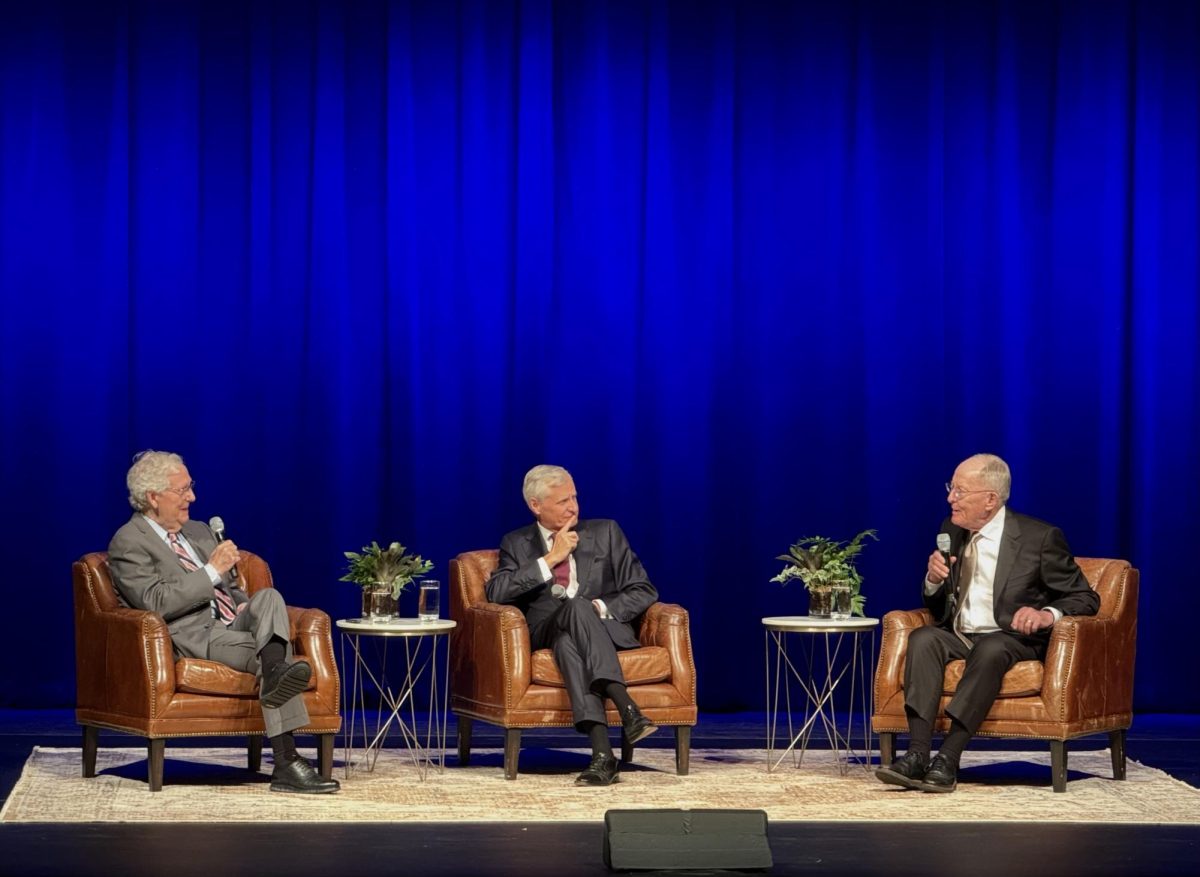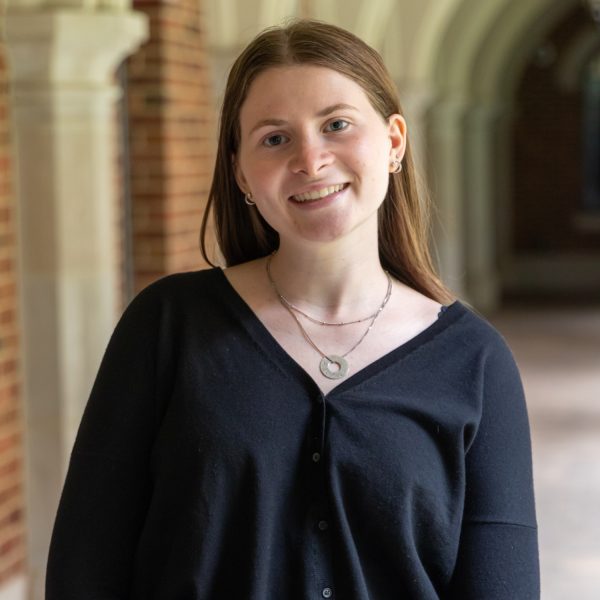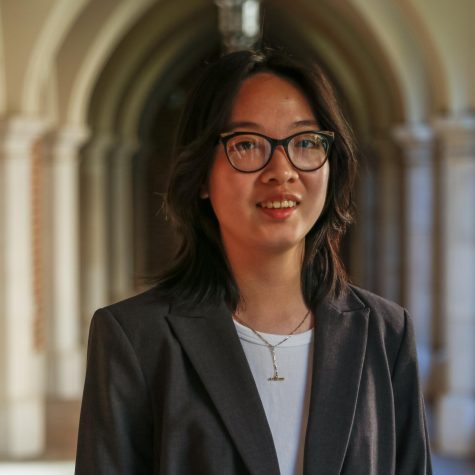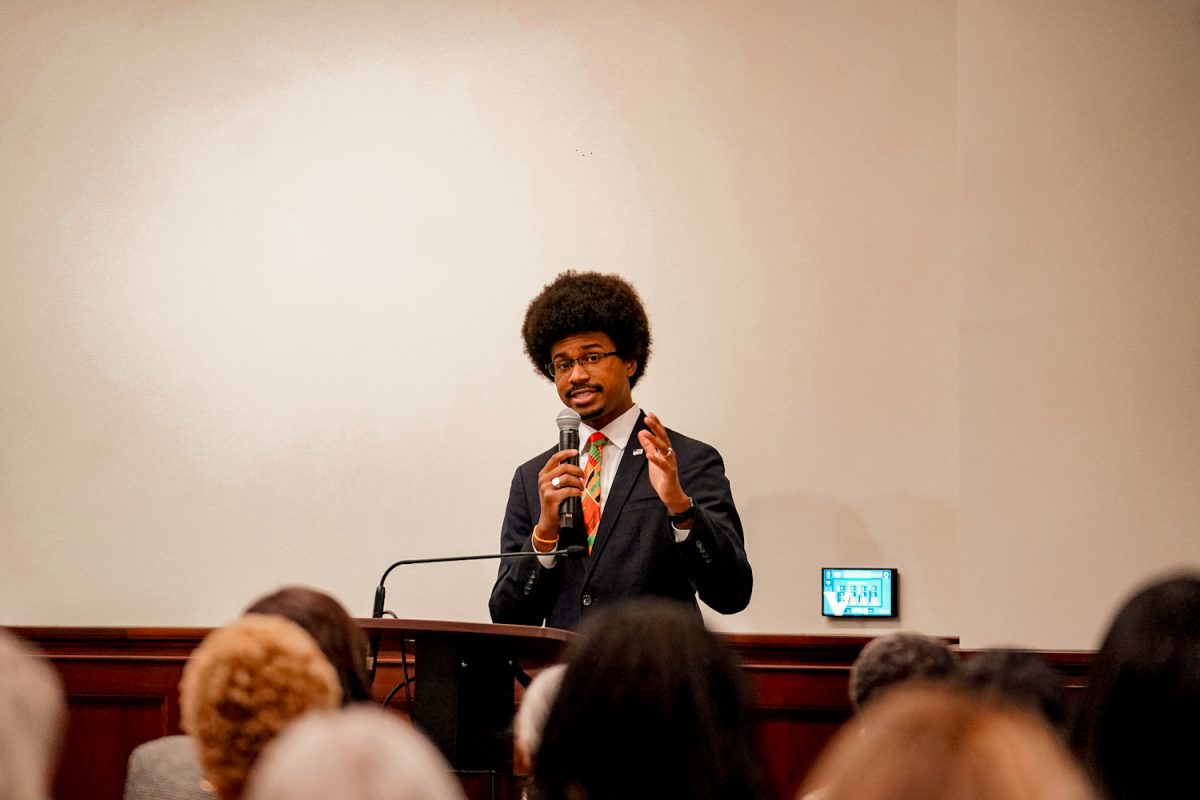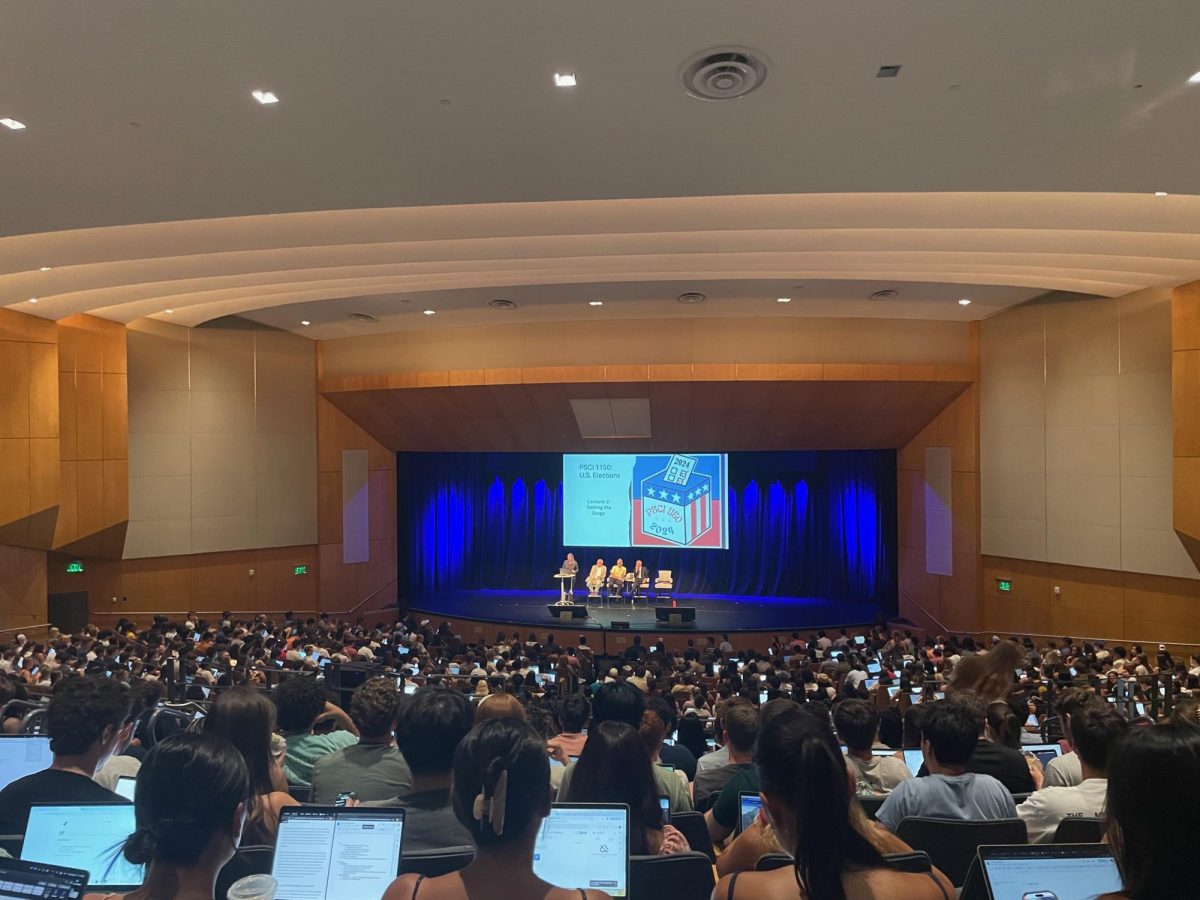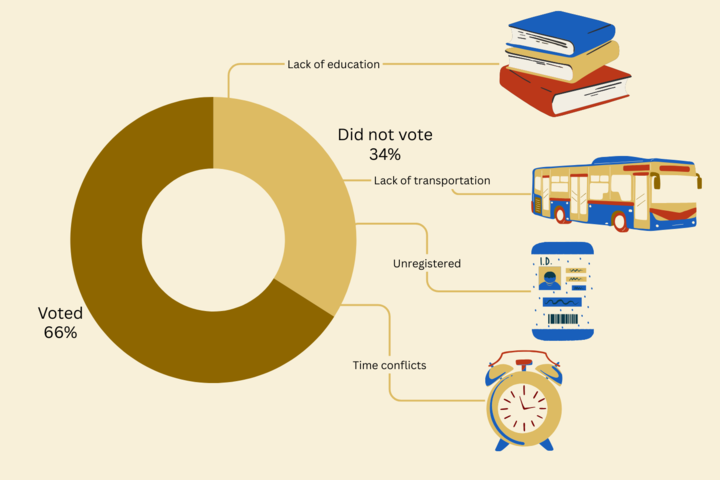Vanderbilt’s U.S. Elections class welcomed Senate Minority Leader Mitch McConnell and former U.S. Senator Lamar Alexander to Langford Auditorium on Nov. 7, just two days after Election Day.
McConnell is a Kentucky senator who has held office since 1985, making him the longest-serving senator in Kentucky’s history. He was the majority leader from 2015 to 2021 and is currently serving as minority leader. In February, McConnell announced that he would be stepping down as leader of the Senate Republican Conference in January 2025.
Lamar Alexander (B.A. ’62) served as a U.S. Senator representing Tennessee from 2003 to 2021. He also served as Chairman of the Senate Republican Conference from 2007 to 2012, working closely with McConnell. Alexander also served as Governor of Tennessee from 1979 to 1987.
Alexander and U.S. Elections professor Jon Meacham moderated the event, directing most of their questions at McConnell. Topics included the 2024 election, the Supreme Court, January 6 and general advice for students.
Pre-class
Before class on Nov. 7, professors hinted at a prominent speaker but chose not to reveal the speaker’s identity, similar to when the class heard from former Speaker of the House of Representatives Nancy Pelosi on Oct. 17. However, a new metal detector policy from VUMC meant there was a long line to get into class for McConnell’s appearance.
The Hustler spoke with sophomore Jonah Dutch, who shared that he arrived at 4:15 p.m. CST, one hour and 15 minutes before class started.
“It’s a cool opportunity being here, and it’s just fun to see someone like this,” Dutch said.
At the beginning of class, Chancellor Daniel Diermeier made an appearance to welcome the two senators. Diermeier thanked students for their curiosity and open-mindedness.
“Acting as one Vanderbilt doesn’t mean we all have to agree,” Diermeier said. “Quite the contrary, our debates must be open and wide-ranging, and we can fiercely but respectfully disagree, but we will never lose sight of our common ties.”
2024 election
In discussing the results of the 2024 presidential election, McConnell praised president-elect Donald Trump for a “remarkable comeback” but said that he was more focused on picking up Senate seats.
“I wanted to turn the job over to the majority leader, and I think that’s clearly going to happen,” McConnell said.
McConnell explained the significance of being the majority leader, as opposed to the minority leader, in terms of being able to set the Senate’s agenda. Alexander seconded this importance, sharing an anecdote of his Senate work with McConnell as majority leader.
“He’d say to me, ‘Bring me something that’s important for the country and that’s bipartisan, and I’ll put it on the floor and try to help you pass it,’” Alexander said.
Meacham then asked McConnell how he thought the Senate has changed over his 40 years in office, to which McConnell noted a “gradual realignment” of both parties.
“When I first got [to the Senate], and even as late as when you may have gotten there, Lamar, there were still shades of moderation on the conservative and on the Democratic sides,” McConnell said. “That’s pretty much gone now.”
He referred to the Democratic party as “left” and expressed his disappointment in President Joe Biden for pursuing what he termed a “Bernie Sanders agenda,” referring to the progressive senator from Vermont.
Supreme Court
Meacham questioned McConnell on a particularly controversial decision from his tenure as Senate Majority Leader, when he prevented President Barack Obama from nominating Merrick Garland to the Supreme Court in the year of the 2016 election, only to help Trump push through a nomination of Amy Coney Barrett right before the 2020 election.
McConnell said that in the past, Democratic politicians had advocated for preventing Supreme Court nominations from going through in election years, although they did not act on it. Therefore, McConnell said he felt both sides were “into it” and stated that he “felt totally comfortable about this.”
Meacham pushed back on certain dates that McConnell had mentioned, in terms of setting precedence and what the exact timing on nominations has looked like throughout American history. After going back and forth on a couple of key dates, McConnell conceded.
“Far be it for me to argue with Jon Meacham,” McConnell said.
Senior Max McCall said he found this exchange particularly interesting.
“I’m glad Meacham pressed him on why he refused to impeach Trump and his selective filling of Supreme Court seats, especially the former, which he did not seem eager to talk about,” McCall said.
January 6
Meacham asked McConnell about his experience on Jan. 6, 2021, and his decision on Trump’s second impeachment.
“I expressed myself pretty publicly, and I feel I have the same view,” McConnell said.
In the direct aftermath of January 6, McConnell referred to it as a violent insurrection. His new book, “The Price of Power,” reveals that McConnell called the events “further evidence of Trump’s complete unfitness for office.” He did not, however, vote to impeach Trump at the second impeachment trial of the former president, instead choosing to acquit.
McConnell shared that his decision not to impeach Trump was based on his view that impeaching a president is a “very serious matter.”
“You can’t impeach somebody who’s no longer in office,” McConnell said.
Looking ahead
McConnell shared his priorities for upcoming years in the Senate, especially with the incoming Republican majority. He expressed his views on foreign policy, saying he thinks the United States needs to “demonstrate peace through strength.”
“I think beating the Russians in Ukraine is the most important thing going on in the world right now,” McConnell said. “I decided that was what I was going to focus on for the next couple of years.”
McConnell and Alexander also discussed the importance of the Senate filibuster and what policy areas McConnell’s successor should be focusing on. The conversation ended with a discussion about pursuing jobs in the public arena, with McConnell offering advice to students.
“I’m extraordinarily unpopular,” McConnell said, to laughter from the audience. “Democrats hate me because of the Supreme Court. Republicans don’t like me because Trump doesn’t like me.”
He said that this unpopularity, however, stems from his ability to “take a punch.”
“To make a difference, to exercise power, to get an outcome is frequently very controversial,” McConnell said.
Student reactions
In messages to The Hustler, students expressed their gratitude for getting to hear from a public figure of McConnell’s caliber.
“Regardless of your opinion on him, he’s been highly influential, so it was interesting to hear his perspective on recent years,” McCall said. “We just heard from Pelosi, and McConnell is a similarly powerful institution of Congress.”
Senior Andrew Kyung, president of Vanderbilt College Democrats, also acknowledged the immense influence McConnell has had over his 40 years in public service.
“One can appreciate the insights of Senator McConnell’s extraordinary tenure without appreciating his legislative record,” Kyung said.
Junior Noah Jenkins, president of Vanderbilt College Republicans, described McConnell’s visit to Vanderbilt as “an honor.”
“It is always an honor to have influential figures in American politics, especially those who are conservative, visit Vanderbilt. Leader McConnell is no exception,” Jenkins said. “The Vanderbilt College Republicans appreciates his dedication to conservatism over his decades of service and wishes him all the best in his retirement from Senate GOP leadership.”
Professor John Geer, one of the four professors of the U.S. Elections class, emphasized that there were many “important takeaways.”
“I hope all the students appreciated how unique that conversation was. It was a great opportunity for all of us,” Geer said.

